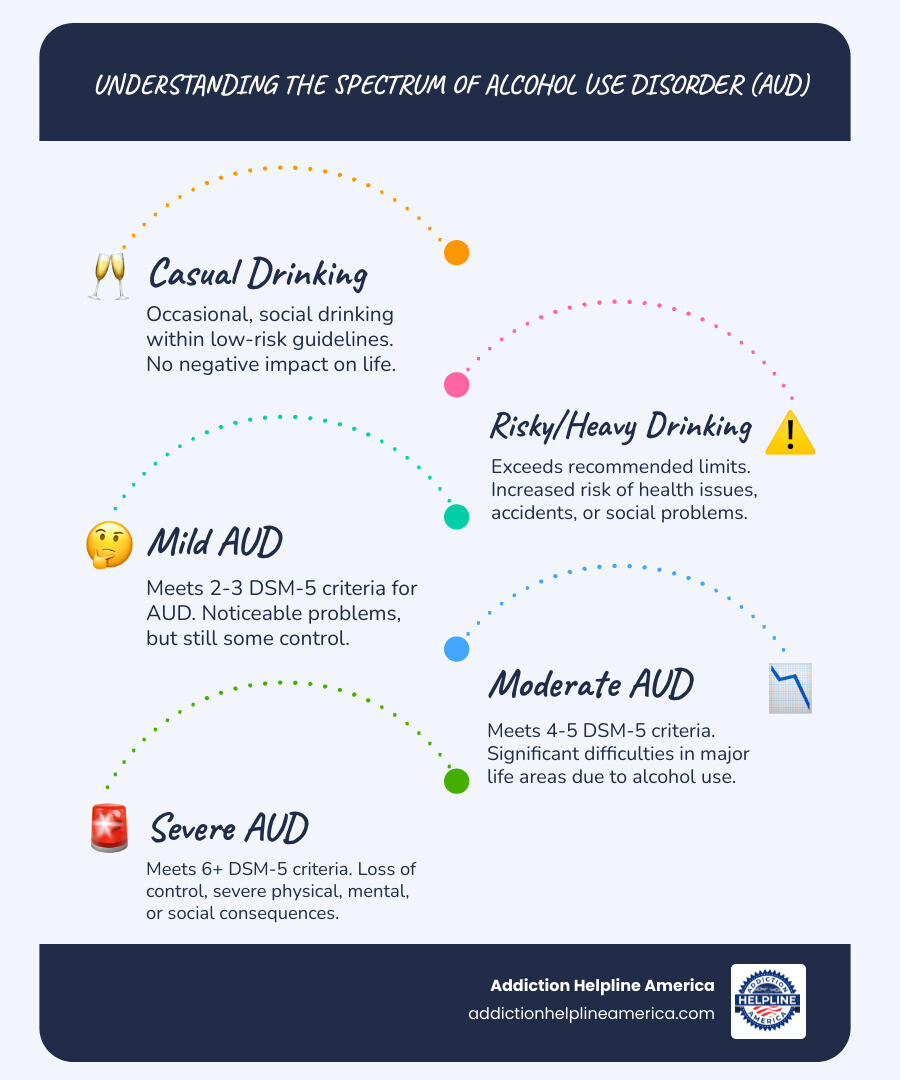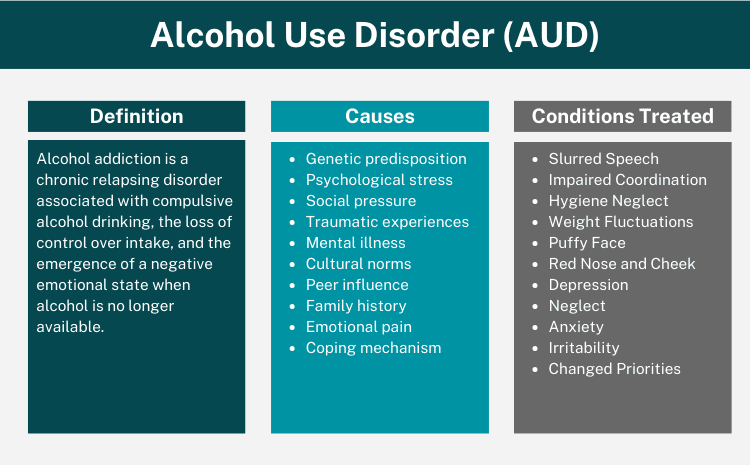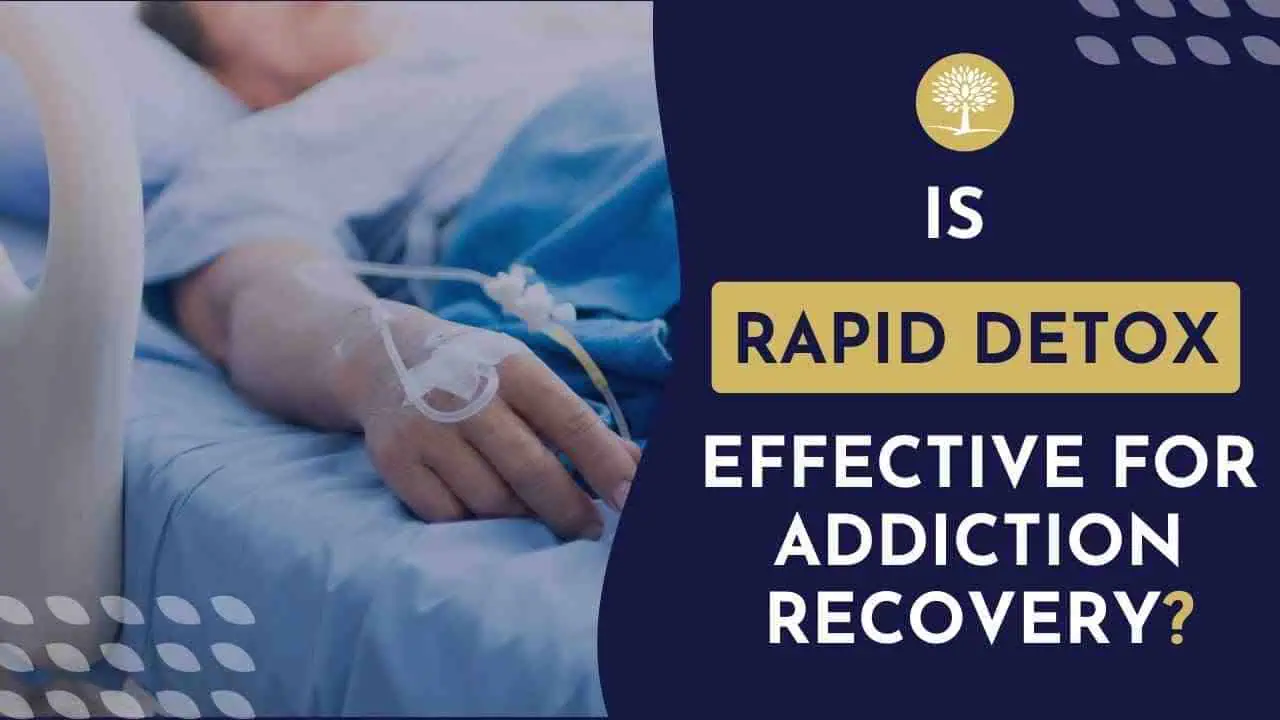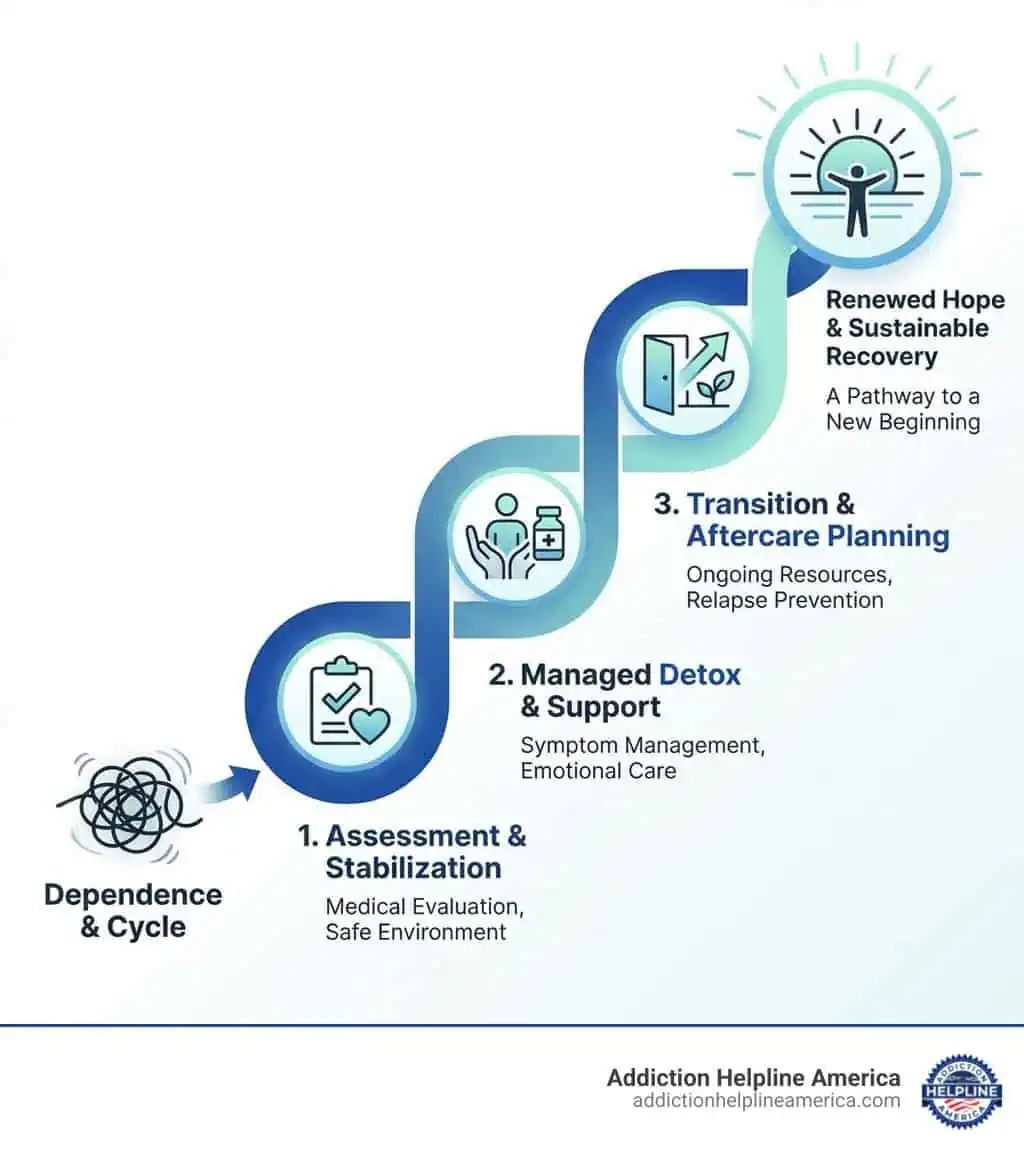
Why Support for Alcoholics Matters: Finding Your Path to Recovery
Support for alcoholics comes in many forms, and understanding your options is the first step toward recovery. Here are the main types of help available:
- Medical Treatment: Inpatient rehab, outpatient programs, and medications
- Peer Support Groups: Alcoholics Anonymous (AA), SMART Recovery, and other meetings
- Professional Counseling: Behavioral therapy with licensed therapists
- Family Support: Al-Anon, family therapy, and resources for loved ones
- Crisis Helplines: 24/7 confidential hotlines like SAMHSA’s National Helpline (1-800-662-4357)
If you’re reading this, you or someone you care about is likely struggling with alcohol use. You’re not alone. Millions of adults in the United States have Alcohol Use Disorder (AUD), and its impact is real. But here’s what matters most: recovery is possible. Evidence-based treatment works, and many people achieve lasting sobriety. There is hope, and there are many proven ways to find it.
This guide will walk you through the spectrum of support for alcoholics, from recognizing warning signs to understanding treatment, peer support, and long-term recovery strategies. We’ll also cover how to help a loved one.
At Addiction Helpline America, we connect individuals and families with the compassionate, confidential support they need. We understand that support for alcoholics isn’t one-size-fits-all and requires personalized guidance and immediate access to resources every step of the way.

Support for alcoholics terms simplified:
- drug and alcohol treatment centers near me
- how much do alcohol treatment centers cost
- is there free alcohol addiction treatment centers
Understanding the Problem: From Signs of AUD to Safe Withdrawal
Recognizing when casual drinking has become a problem is a critical first step. It’s often a gradual shift, where alcohol becomes a need rather than a choice. This is where finding support for alcoholics becomes essential.
Recognizing the Signs of Alcohol Use Disorder (AUD)
Alcohol Use Disorder (AUD) is a treatable medical condition where a person finds it difficult to control their alcohol use, despite negative consequences. It’s not a character flaw. Healthcare professionals diagnose AUD based on 11 criteria from the DSM-5. Meeting 2-3 criteria indicates mild AUD, 4-5 suggests moderate, and 6 or more means severe AUD.
In real life, this can look like:
- Neglecting responsibilities at work or home due to drinking.
- Making failed attempts to quit or cut back.
- Drinking in risky situations, like before driving.
- Experiencing persistent cravings for alcohol.
- Developing tolerance, needing more alcohol for the same effect.
- Spending excessive time drinking or recovering from its effects.
- Continuing to drink despite it worsening health or relationship problems.
If these patterns sound familiar, it’s a clear signal that help is needed. Understanding alcohol as an addictive drug can put the situation into perspective.

The Dangers of Alcohol Withdrawal and How to Manage It Safely
If you’ve been drinking heavily for a long time, your body may be physically dependent on alcohol. Suddenly stopping—going “cold turkey”—can be dangerous and even life-threatening. This reaction is called Alcohol Withdrawal Syndrome (AWS).
- Mild to moderate symptoms include tremors (shakes), sweating, headaches, nausea, anxiety, and insomnia. While miserable, they are manageable with medical help.
- Severe symptoms are medical emergencies. They can include confusion, hallucinations, seizures, and the most dangerous form, Delirium Tremens (DTs)—a rare but potentially fatal condition requiring immediate medical intervention.
This is why medical detoxification is so important. Quitting alone can be unsafe. A medical detox program provides a supervised environment where professionals manage symptoms with medication to keep you safe and comfortable. This is an essential form of support for alcoholics during a vulnerable phase of recovery.
Our complete guide to alcohol withdrawal explains what to expect. When you’re ready, our team can help you find quality alcohol treatment.
A Spectrum of Support for Alcoholics: Medical, Therapeutic, and Peer Options
Recovery isn’t one-size-fits-all. Support for alcoholics includes a wide range of options, from medical and professional therapy to peer communities. Understanding this spectrum helps you find the right combination for your journey.
Professional Treatment: The Role of Medical and Clinical Care
When alcohol use affects your health and daily life, professional treatment is often essential. This evidence-based care addresses both the physical and psychological aspects of addiction.
- Inpatient Rehab: This provides the most intensive care, with 24/7 medical supervision and therapy in a residential setting. It’s ideal for those needing medical detox or a trigger-free environment.
- Outpatient Programs: These offer structured treatment while you live at home. Options include Intensive Outpatient Programs (IOP) and more intensive Partial Hospitalization Programs (PHP). Many people transition from inpatient to outpatient care as they progress.
- Behavioral Therapies: Cognitive-Behavioral Therapy (CBT) helps you identify triggers and develop healthier coping skills. Other therapies focus on building motivation and connecting you with 12-step principles. Family counseling is also often available.
- Medication-Assisted Treatment (MAT): Three non-addictive, FDA-approved medications provide significant support. Naltrexone reduces cravings and blocks alcohol’s rewarding effects. Acamprosate eases post-acute withdrawal symptoms like anxiety and insomnia. Disulfiram creates unpleasant physical reactions to alcohol, acting as a deterrent.
These medications work best when combined with counseling and support groups. Our team can help you find an alcohol and drug center that offers these integrated services.
Peer Support: Finding Community and Connection

Connecting with people who share your experience is uniquely powerful. Peer support groups reduce the shame and isolation of addiction while providing practical wisdom and encouragement.
- Alcoholics Anonymous (AA): A free, 12-step fellowship with the sole requirement of a desire to stop drinking. AA meetings are widely available in-person and online at aa.org.
- SMART Recovery: A secular, science-based alternative that uses cognitive-behavioral tools for self-empowerment. Learn more at smartrecovery.org.
- Women for Sobriety (WFS): A program focused on the unique challenges women face in recovery, emphasizing emotional growth and self-esteem. Find resources at womenforsobriety.org.
- Other Options: Secular groups like SOS and LifeRing, and moderation-focused groups like Moderation Management (MM), offer different approaches.
Finding the right group may take time. Explore options through online directories or our page on alcohol support groups.
Integrated Care for Co-Occurring Mental Health Disorders
Alcohol use is often intertwined with mental health struggles like depression, anxiety, or trauma. This is known as a co-occurring disorder or dual diagnosis. Many people drink to self-medicate, but alcohol ultimately worsens these conditions, creating a painful cycle.
Effective treatment must address both issues simultaneously. This integrated treatment might involve specialized psychotherapy (like CBT or DBT), coordinated medication management for both AUD and mental health conditions, and support groups for those with a dual diagnosis. Treating the whole person is essential for lasting recovery. For more information, see research on integrated treatment of substance use and psychiatric disorders.
The Recovery Journey: Strategies for Lasting Sobriety
Recovery is a journey of making conscious choices, building new habits, and developing resilience. This is where support for alcoholics transforms into lasting change.
Choosing Your Path and Building a Sober Lifestyle
An early question is whether to cut back or quit altogether. While some with mild AUD find success with moderation, quitting altogether (abstinence) is generally the safest and most effective path for those with moderate to severe AUD. It removes the mental burden of moderation and the risk of a single drink triggering a relapse.
Building a sober lifestyle requires practical strategies:
- Set realistic goals: Establish a quit date or a clear plan for cutting back.
- Identify your triggers: Know the people, places, or emotions that make you want to drink so you can create a plan to manage them.
- Cope with cravings: Have tools ready. Talk to someone, distract yourself, or practice “urge surfing”—observing the craving as a temporary wave that will pass without acting on it.
- Build a sober social network: Find new hobbies and spend time with friends who support your sobriety. This helps fill the space alcohol once occupied with joy and purpose.

Relapse Prevention: Maintaining Sobriety for the Long Term
Relapse is not a failure; it’s a common part of recovery for many. Research shows about 66% of people in treatment for AUD experience relapse, but a setback is an opportunity to learn and recommit.
A long-term sobriety plan is key. This includes:
- A relapse prevention plan: Your personal roadmap identifying high-risk situations and coping skills.
- Aftercare programs: Ongoing connection to therapy, support groups, or a sponsor is critical for maintenance.
- Ongoing therapy: Professional support for alcoholics provides a safe space to manage life’s stresses without alcohol.
- Building resilience: Develop healthy coping mechanisms like exercise, meditation, or journaling to handle pressure.
- Sober living: These structured, alcohol-free homes can provide a supportive bridge between treatment and independent living, especially if your home environment has triggers.
Recovery is an ongoing process, not a destination. Persistence matters, and setbacks are part of the journey. For more, see research on relapse prevention in primary care.
How to Help a Loved One: Guidance for Family and Friends
Watching a loved one struggle with alcohol is painful and exhausting. While you can’t force someone to change, you can make a meaningful difference. The most important thing to remember is that support for alcoholics starts with compassion, not criticism.
- Start the conversation with care. Choose a calm, sober moment. Express your concern using “I” statements and specific examples, like “I’m worried because I’ve noticed…” Avoid accusations or labels.
- Avoid enabling. Enabling means unintentionally making it easier for someone to drink, such as making excuses for them or giving them money for alcohol. These actions, though born from love, shield them from the consequences that might motivate change.
- Set clear boundaries. Boundaries are acts of self-preservation and honest love, not punishments. You might say, “I love you, but I can’t have you in my home if you’ve been drinking.” Maintaining them is hard, which is why your own support is vital.
- Prioritize your own self-care. Loving someone with AUD takes a toll. Groups like Al-Anon Family Groups and Alateen (for teens) provide a safe space with others who understand. They teach that you didn’t cause it, can’t control it, and can’t cure it—but you can care for yourself.
Sometimes, a loved one may refuse help even when they are a danger to themselves or others. In some states, legal options like Florida’s Marchman Act allow families to petition for involuntary treatment. Research shows this can be effective, as many people find motivation once in a structured care environment.
You cannot want sobriety for someone more than they want it for themselves. But you can offer loving support, maintain healthy boundaries, and be ready when they decide to seek help. Our family support page offers more resources for this difficult journey.

Frequently Asked Questions about Finding Support for Alcoholics
When facing alcohol use disorder, it’s normal to have questions. Here are answers to some of the most common ones.
What is the difference between alcohol abuse and alcoholism?
These older terms have been replaced by a single diagnosis: Alcohol Use Disorder (AUD). Previously, “alcohol abuse” described harmful drinking without physical dependence, while “alcoholism” implied dependence and compulsion. The AUD diagnosis recognizes that problematic drinking exists on a spectrum from mild to severe. This modern approach helps reduce stigma and frames AUD as a treatable medical condition, not a character flaw.
Can medications really help with alcohol addiction?
Yes, absolutely. Three non-addictive, FDA-approved medications can be a powerful part of a comprehensive treatment plan:
- Naltrexone reduces cravings and blocks alcohol’s pleasurable effects.
- Acamprosate eases lingering withdrawal symptoms like anxiety and insomnia.
- Disulfiram causes an unpleasant physical reaction to alcohol, acting as a strong deterrent.
These medications are tools to support recovery and work best when combined with therapy and other support for alcoholics.
What is the first step I should take to get help?
Taking the first step is the bravest and most important move. Here’s a simple path to begin:
- Acknowledge the problem. Being honest with yourself that there is an issue is the true starting point.
- Talk to a professional. Your primary care doctor or a mental health professional can provide a confidential assessment and recommend treatment options. They can also advise on the risks of withdrawal.
- Call a confidential helpline. If you need immediate guidance, call SAMHSA’s National Helpline at 1-800-662-HELP (4357). It’s free, available 24/7, and offers referrals to treatment and support. The online NIAAA Alcohol Treatment Navigator® is another excellent tool for finding quality care.
Seeking help is a sign of strength. At Addiction Helpline America, we’re here to help you explore your options and find a path to recovery.
Conclusion: Your Path to Hope and Recovery Starts Now
Seeking information about support for alcoholics is a courageous first step. Recovery from Alcohol Use Disorder looks different for everyone, but the good news is that you have options. The right path might involve inpatient or outpatient care, medication, peer support, or a combination of these approaches.
What matters most is that you don’t have to do it alone. Recovery is possible. People find hope, families heal, and lives change for the better every single day.
At Addiction Helpline America, our mission is to provide compassionate, confidential help. We understand the process can feel overwhelming due to concerns about cost, privacy, or choosing the right treatment. We’re here to listen without judgment and help you find support that fits your specific needs.
Our team works with a network of treatment centers across the U.S. to connect you with the right option for your situation, taking into account your insurance, location, and preferences. Your path to recovery starts now, with the decision to pursue change.
If you’re ready to explore your options, we’re ready to help. Our service is free and confidential. We’re here to find a rehab center near you and support you on your journey toward lasting sobriety. It’s a journey worth taking.
Our helpline is 100%
free & confidential
If you or someone you care about is struggling with drug or alcohol addiction, we can help you explore your recovery options. Don’t face this challenge alone—seek support from us.
Programs
Resources
Will my insurance
cover addiction
treatment?
We're ready to help
Find the best
drug or alcohol treatment
center
Are you or a loved one struggling with addiction? Call today to speak to a treatment expert.












